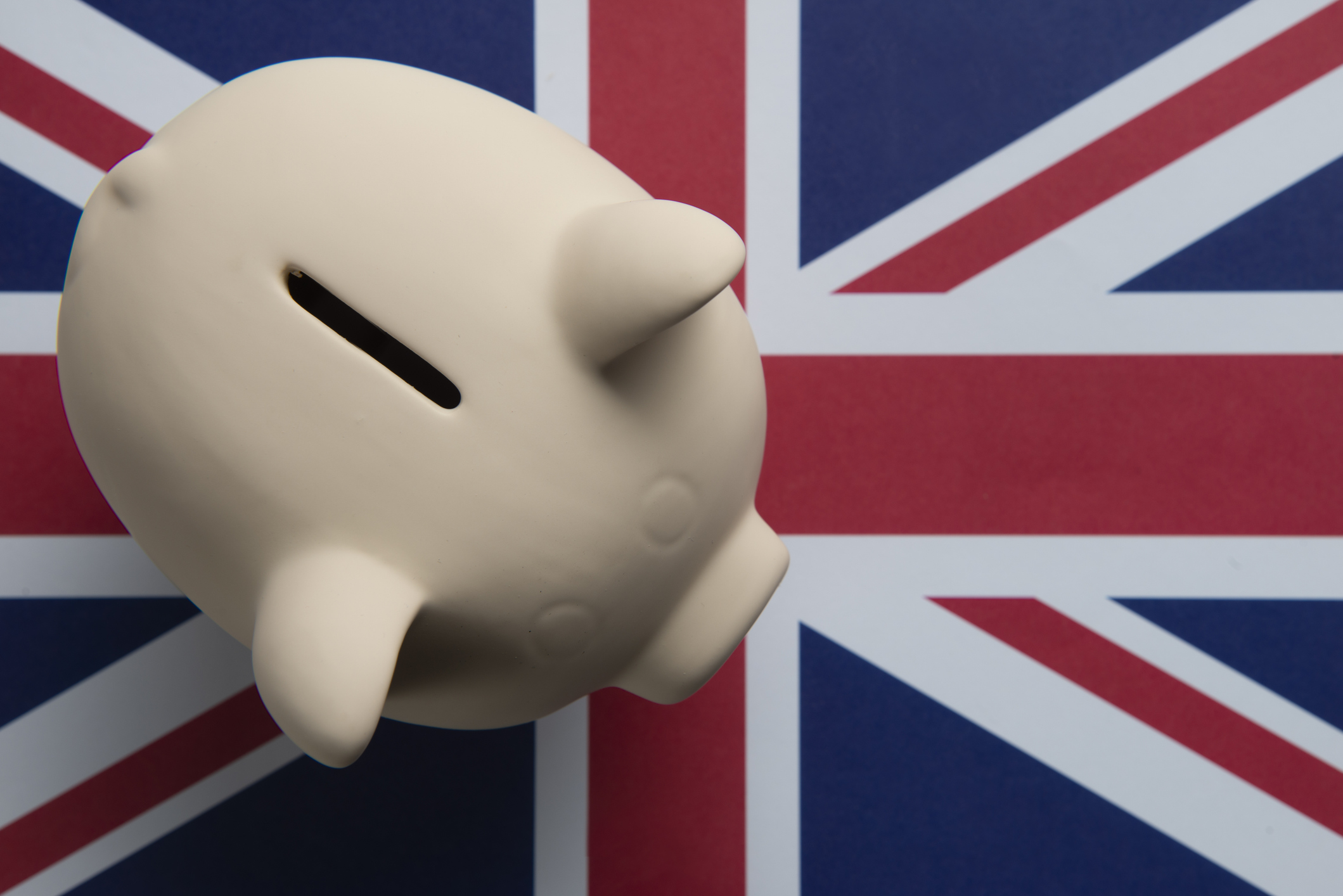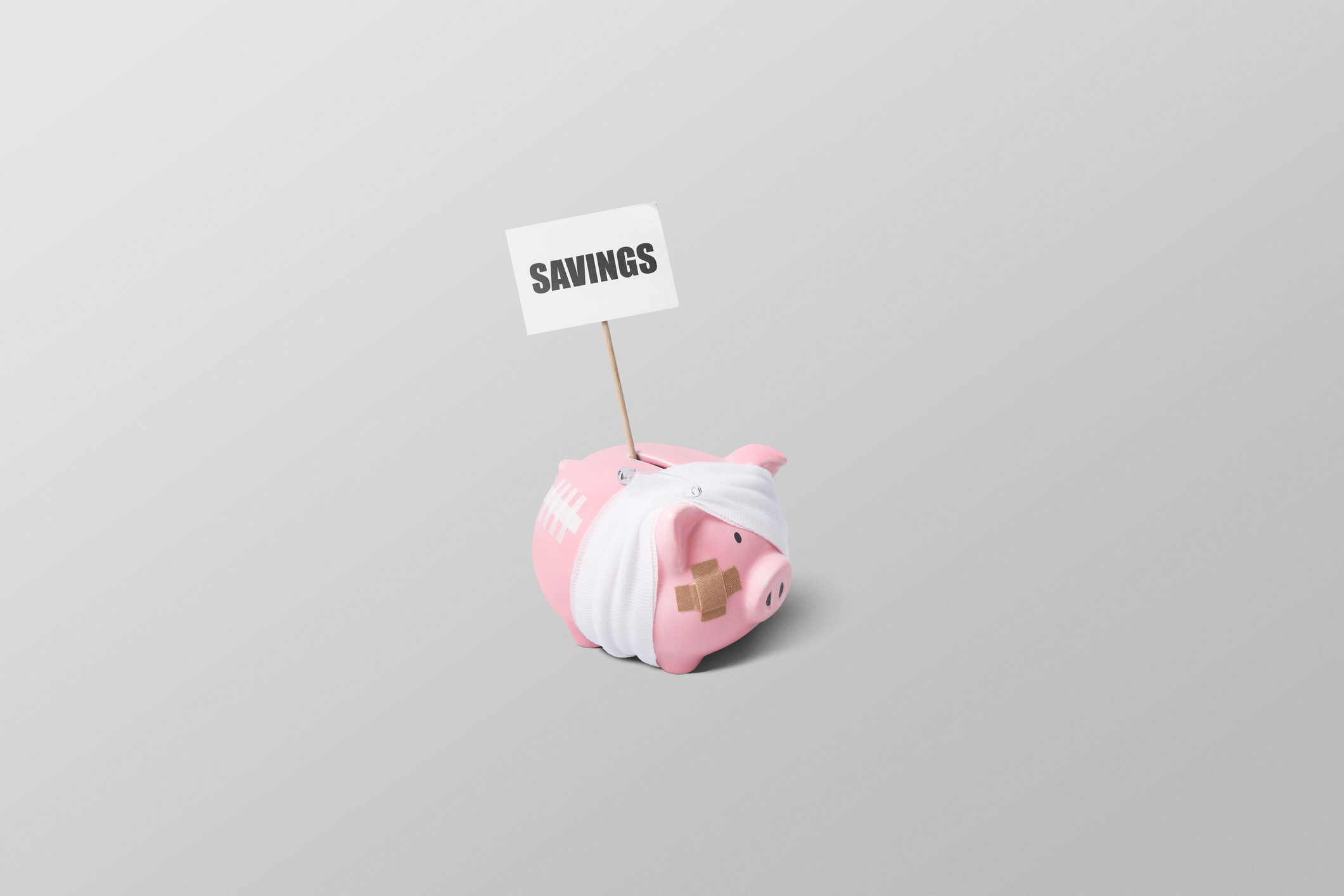Interest rates remain frozen - when will the Bank of England cut the cost of borrowing?
The Bank of England has held interest rates for the fifth consecutive monetary policy meeting. Here is what it means for your money.


Get the latest financial news, insights and expert analysis from our award-winning MoneyWeek team, to help you understand what really matters when it comes to your finances.
You are now subscribed
Your newsletter sign-up was successful
Want to add more newsletters?

Twice daily
MoneyWeek
Get the latest financial news, insights and expert analysis from our award-winning MoneyWeek team, to help you understand what really matters when it comes to your finances.

Four times a week
Look After My Bills
Sign up to our free money-saving newsletter, filled with the latest news and expert advice to help you find the best tips and deals for managing your bills. Start saving today!
Interest rates have been frozen by the Bank of England (BoE) for the fifth consecutive monetary policy committee meeting (MPC).
The central bank opted to hold interest rates during its March meeting, meaning the cost of borrowing has been at the same level since August 2023.
Committee members voted to hold the rate by 8-1 votes, which is a shift from the 6-3 split in the previous month.
MoneyWeek
Subscribe to MoneyWeek today and get your first six magazine issues absolutely FREE

Sign up to Money Morning
Don't miss the latest investment and personal finances news, market analysis, plus money-saving tips with our free twice-daily newsletter
Don't miss the latest investment and personal finances news, market analysis, plus money-saving tips with our free twice-daily newsletter
It comes after the BoE had hiked rates for much of the first half of 2023 in an effort to bring down inflation.
The rate of inflation has slowed in recent months and hit a two-year low of 3.4% during February.
This has raised hopes of an interest rate cut.
“The financial markets have been betting on rate cuts this year, but when this will happen exactly has been a topic of much conjecture," says Alice Haine, personal finance analyst for Bestinvest.
"For now, however, the BoE is sticking to its guns and holding rates at a 16-year high as it waits for more concrete evidence that inflationary pressures have been well and truly stamped out.
“Hints of the shifting sentiment were evident in the rate-setting Monetary Policy Committee’s split decision, with eight in favour of holding the status quo and one calling for a rate cut.
"This is a slight change in stance from the MPC’s last 6-3 voting pattern when six voted to leave rates unchanged, two voted for a quarter-point increase and one opted for a rate cut."
What is the outlook for interest rates?
The BoE has a delicate balance between getting inflation to its 2% inflation rate target and not causing too much damage to the economy by pushing up the cost of borrowing.
The interest rate rises of last year appear to have brought inflation down and analysts believe the most likely future direction is a cut.
The question is timing.
The BoE doesn’t want to move too early and risk pushing inflation further up.
The bank has previously said it is monitoring what is going on with wage growth, which remains above inflation, before it decides on a cut.
Some costs such as food and housing also still remain high, while the BoE may want to be reassured that the UK is out of a recession after entering one at the end of 2023.
The majority of MPC committee members voted to hold rates on this occasion, with just one backing a cut to 5%.
This is a shift from the February meeting when six voted for a hold, two wanted an increase and one backed a cut.
Ben Laidler, analyst at investment platform eToro, said the voting pattern suggests a dovish shift after two members removed their calls for rate hikes and all now looking for unchanged or lower interest rates.
"This will have been encouraged by recent better-than-expected headline inflation readings, even as underlying core price rises remain the highest among developed market peers," he says.
The MPC suggested that while recent Spring Budget measures will boost GDP, uncertainties remain around the jobs market and pay growth.
It suggested that current high interest rates are bringing inflation down but said it "remains prepared" to adjust monetary policy as needed according to economic data to return inflation to the 2% target sustainably.
Richard Carter, head of fixed interest research at Quilter Cheviot, warns that wage growth continues to be a "significant driver" of inflation, particularly in the service sector.
"Though this is now slowing a little it will no doubt make this (2%) target harder to achieve," he says.
"There are also signs that the UK has already pulled itself out of the recession it entered at the end of last year with a return to a modest level of growth. As such, the Bank has reiterated that it will maintain its data dependent resolve until it is satisfied that inflation has come down far enough and will not see a further spike."
What the rate freeze means for mortgage borrowers
The interest rate freeze is good news for mortgage borrowers on trackers as it means their monthly repayments won’t rise. Some may have hoped for a cut though to reduce their outgoings.
Fixed rate mortgage pricing had started to come down earlier this year, reaching below 4% for larger loans.
But lenders have been increasing mortgage rates in recent weeks as the cost of wholesale funding has risen amid uncertainty about the UK’s economic performance as well as questions about when rates will be cut and how quickly inflation will fall.
Since the start of September 2023, the average two-year fixed rate has fallen from 6.70% to 5.76% and the average five-year fixed rate has fallen from 6.19% to 5.34%, according to Moneyfacts.
These average rates have, however, risen from 5.56% and 5.18% respectively since last month.
Borrowers may hope that the latest freeze reassures lenders and generates more competitive pricing.
"No change does not mean stagnation in mortgage rates as other influences remain at play, so borrowers must not be complacent if they are searching for a new deal," says Rachel Springall, finance expert at Moneyfacts.
"Indeed, lenders have been quick to reassess their rate pricing over the past month and even pulled deals from the market."
What the rate freeze means for savers
Savers have benefited from interest rate returns hitting 15-year highs in recent months in response to the higher base rate.
Many of the top savings deals have started disappearing though as interest rates are expected to have peaked.
The fall in inflation this week means many savers in the best savings deals will be earning more than the cost of living measure.
But the downward trend and freeze in interest rates may prompt providers to make their own cuts, making it all the more important to grab the best deals while you can.
Mark Hicks, head of active savings at Hargreaves Lansdown, says markets have been busy pricing in for rates to stay higher for longer, so today's decision is unlikely to shake those expectations.
"There’s plenty of good news for savers, who are running into the cash ISA season with some competitive rates still above 5%," he says.
"These have already stuck around for much longer than was initially expected, so there are plenty of reasons to get this year’s cash ISA sorted sooner rather than later. It’s a sensible time to fix either savings or cash ISAs too, because if the Bank of England does cut as expected in the summer, you’ll have locked in a decent rate.”
Get the latest financial news, insights and expert analysis from our award-winning MoneyWeek team, to help you understand what really matters when it comes to your finances.

Marc Shoffman is an award-winning freelance journalist specialising in business, personal finance and property. His work has appeared in print and online publications ranging from FT Business to The Times, Mail on Sunday and the i newspaper. He also co-presents the In For A Penny financial planning podcast.
-
 Should you buy an active ETF?
Should you buy an active ETF?ETFs are often mischaracterised as passive products, but they can be a convenient way to add active management to your portfolio
-
 Power up your pension before 5 April – easy ways to save before the tax year end
Power up your pension before 5 April – easy ways to save before the tax year endWith the end of the tax year looming, pension savers currently have a window to review and maximise what’s going into their retirement funds – we look at how
-
 Brits leave £31.6 billion in savings accounts paying 1% interest or less – do you need to switch?
Brits leave £31.6 billion in savings accounts paying 1% interest or less – do you need to switch?Eight million Brits hold money in savings accounts that pay 1% interest or less, meaning the value of their cash is being eroded by inflation.
-
 Buying vs renting: is is better to own or rent your home?
Buying vs renting: is is better to own or rent your home?The higher mortgage rates of recent years have actually made renting comparatively cheaper, analysis suggests. But there are hidden costs to long term renting.
-
 Hargreaves Lansdown launches first cash ISA – how does it compare?
Hargreaves Lansdown launches first cash ISA – how does it compare?Hargreaves Lansdown is offering an own brand cash ISA for the first time with their new easy-access account. How does the interest rate compare to other products?
-
 Is Britain heading for a big debt crisis?
Is Britain heading for a big debt crisis?Opinion Things are not yet as bad as some reports have claimed. But they sure aren’t rosy either, says Julian Jessop
-
 ‘My NS&I one-year British Savings Bond is maturing – what should I do with my savings?
‘My NS&I one-year British Savings Bond is maturing – what should I do with my savings?Thousands of savers will see their fixed-rate savings accounts mature next month. We consider whether you should stick with NS&I or move to a competitor
-
 How to pay in a cheque
How to pay in a chequeReceiving or writing a cheque has become much less common in recent years as instant bank transfers have grown in popularity. Amid widespread bank branch closures, we explain what to do if you get a cheque, and how you can pay one into your bank account.
-
 ‘Current account coasters’ are leaving billions of pounds languishing in low interest accounts
‘Current account coasters’ are leaving billions of pounds languishing in low interest accountsThe average saver with £10,000 or more in their zero interest current account is missing out on over £1,500 in potential interest payments, new research has revealed.
-
 Best fixed rate cash ISAs – earn up to 4.22%
Best fixed rate cash ISAs – earn up to 4.22%We look at the best fixed rate cash ISAs on the market right now for savers who are willing to lock their cash away for guaranteed tax-free gains